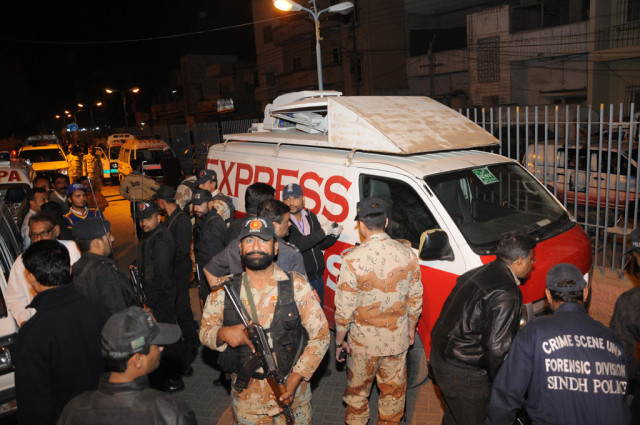Deceptive freedom
Journalists, whether they operate in remote parts of the country or in mega cities, essentially have no protection

In some cases of violence against journalists, criminal mafias and political elements appear to be responsible; in others, the hand of terror outfits cannot be ruled out. PHOTO: EXPRESS/MOHAMMAD NOMAN
In some cases of violence against journalists, criminal mafias and political elements appear to be responsible; in others, the hand of terror outfits cannot be ruled out. The purpose, of course, is to silence voices and prevent the truth from emerging. The state has essentially failed in its duty to offer journalists the security they need to pursue their profession without fear of death. The current state of affairs has meant that fewer media professionals are willing to risk exploring stories which may be of huge public interest, but bringing them into limelight may put lives in jeopardy. Government organisations do not help matters either. Media advisories, something Pakistani newspapers have been familiar with since the earliest days of the country’s inception, continue to come in, in essence acting as a warning against what can be written and what should be avoided when it comes to certain issues. Restricting freedom in this manner inflicts more harm than good. Journalists, whether they operate in remote parts of the country or in mega cities, essentially have no protection. This makes them the easiest of targets and the attacks on them act to eliminate dissent in a society desperately in need of free, open discussion and a wider range of thought.
Published in The Express Tribune, July 27th, 2015.
Like Opinion & Editorial on Facebook, follow @ETOpEd on Twitter to receive all updates on all our daily pieces.















COMMENTS
Comments are moderated and generally will be posted if they are on-topic and not abusive.
For more information, please see our Comments FAQ